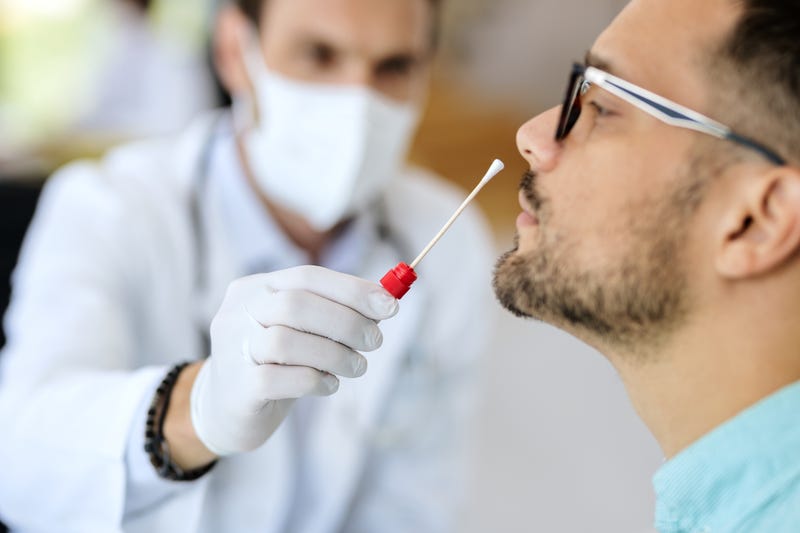
The COVID-19 omicron variant, first detected in South Africa last Friday but with cases in Western Europe dating back as early as Nov. 19, has now made its way to the U.S. after a person in San Francisco tested positive for the strain on Wednesday.
Infectious disease experts said it was only a matter of time before the variant arrived locally.

"This was fully expected," Dr. Dean Blumberg, an infectious disease specialist at UC Davis, told KCBS Radio's Rebecca Corral on Wednesday afternoon. "If you get one of these variants anywhere in the world, if it's truly more infectious than other strains, then it is going to be everywhere, and it’s going to be detected in other locations also."
The person, who tested positive after travelling from South Africa, is fully vaccinated and said to have a mild sickness. With only one confirmed case, Blumberg said it’s unclear how severely the omicron variant will affect people.
Still, Blumberg expects healthy, fully vaccinated people – regardless of their booster status – will generally have a mild case. People who are at least 65 years old, or those with underlying health conditions, who have had a booster shot should be protected against severe disease and hospitalization, in his estimation.
"It's unlikely that the vaccines are going to lose all protection," Blumberg. "They might be, instead of 95% protection, maybe they will have 90% or 85% protection. That is still pretty darn good."
In the meantime, Blumberg said we have to monitor the new strain and see if it’s truly more transmissible than other variants. With new strains, new questions arise.
Chief among them: Will prior immunity from vaccination or infection protect against this variant? When the delta variant emerged, many started to wonder if the approved Johnson & Johnson, Moderna and Pfizer vaccines would be effective against new strains.
"We might be able to boost up the antibody levels high enough that it does protect," he said. "Or, if possible, we may need to swap out the strain that is currently in our current vaccine and update it with these new strains."
To have a happy holiday season, Blumberg stated being fully vaccinated is the most effective way to protect yourself and your loved ones. He also advised to wear a mask around unvaccinated people who don’t live in your household.
